AND PRACTICAL RECOMMENDATIONS
HOW TO GET TO MOROCCO
The options to get to Morocco are by boat, plane or own vehicle.
If you choose the option of crossing the Strait of Gibraltar from Spain you can do it from Tarifa to Tangier Ville or from Algeciras to Tanger Med, whose port is about 40km from the city of Tangier. If you choose the option of arriving by plane you can find numerous airlines that operate regularly from anywhere in the world.
The Mohammed V airport in Casablanca is the main airport in Morocco but there is a total of 15 international and national airports very well connected to Europe, Asia, America, Africa and the Middle East, such as the airport of Marrakech, Rabat, Fez, Agadir, Tangier, Ouarzazate and Nador.
Today there are numerous airlines that have flights to Morocco at low cost prices, especially from major European cities.
When planning your trip, we recommend to purchase your ticket in advance to be able to benefit from the advantages that airlines usually offer when buying your flight in advance. It is possible that the prices of the flights increase when the planned dates of your trip are approaching or on the dates where there will be an increase of the number of passengers.
In all the terminals of ports and airports the entrance is only allowed to passengers, so the accompanying guide has the obligation to wait for your arrival outside the terminal, in the specific place to wait for passengers.
PASSPORT AND VISAS
If you are a European Union citizen, you do not need a visa but you need a valid passport. The passport must have at least 6 months of validity beyond the dates of your travel.
If you are not a European Union citizen, we recommend that you contact the Moroccan Embassy or Consulate in your country to find out if the apply for a visa is needed, and its requirements.
Once you arrive in Moroccan territory it is necessary and mandatory to fill out a form that you will find at the arrival terminal to justify the reason for your visit and in order to control who enters and leaves the country. This form must be filled and shown at the customs control with your passport.
You must follow the same procedure before leaving the country.
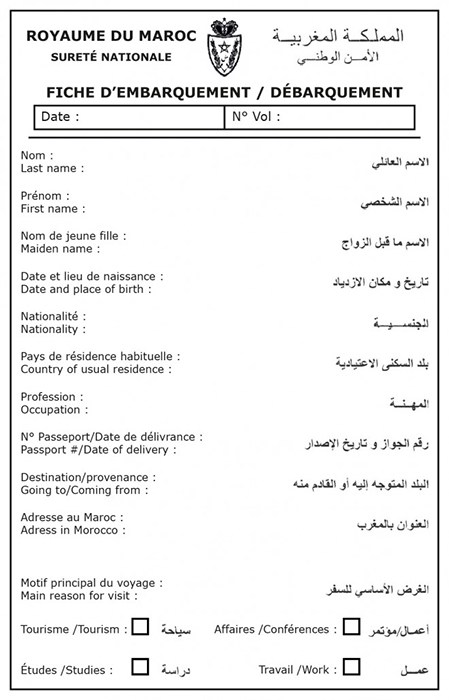
Nom: Surname (s)
Prénom: First name
Nom de jeune fille: Maiden name (to fill in only women who have adopted the husband’s last name when getting married
Date et lieu de naissance: Date and place of birth
Nationalité: Nationality
Pays de résidence habituelle: Country of habitual residence (normally it will coincide with nationality, unless you have emigrated) Profession: Occupation.
NºPasseport/Date déliverance: Passport number and date of issue (do not confused with expiration date).
Destination / provenance: Hometown
Adresse au Maroc: Address in Morocco (the city where you are going to stay the first night together with the name and address of the accommodation)
For example: MARRAKECH – RIAD IRHALNE Dirección: N 5 derb sidi ben aissa dadachi Marrakech.
Motif principal du voyage: Main reason for your trip (tourism).
CLIMATE AND TEMPERATURES
Morocco has different geographical areas and temperatures may change from one area to another, however the weather is mild all year (except in mountain and desert areas).
The climate in Morocco can be divided essentially into four zones:
North / Mediterranean
Atlantic coast / oceanic climate
Mountainous areas of the interior / continental climate
Southern zone / desert or semi-desert climate
Although the weather is an unpredictable factor, for the autumn and winter months, we recommend comfortable and warm clothing and footwear, especially for the mountain and desert areas. For the months of spring and summer, it is advisable to wear comfortable cotton clothes and shoes, as well as a light jacket, if necessary.
LOCAL CURRENCY
The official Moroccan currency is the dirham (MAD) that is divided into 100 cents.
There is banknotes of 200, 100, 50, 20, and coins of 10, 5, 1 and smaller amounts (0.10, 0.20 and 0.50).
Euros, pounds and US dollars are the most common and easiest currencies to change. Currency can be exchanged at any bank office in your country, at the airport or at the exchange offices in any city in Morocco.
The method of payment by credit card is only accepted in large hotels, restaurants of a certain level and in some shops in large cities. We recommend payment in cash and in our local currency to avoid misunderstandings. In any case before buying a product or service make sure that they accept payment with this method.
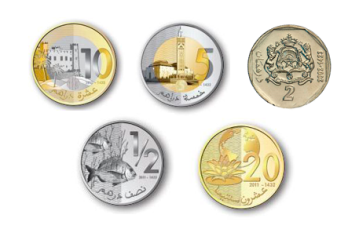
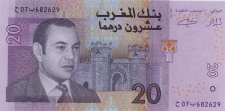
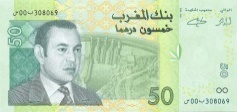
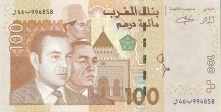
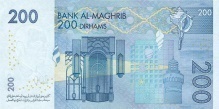
THE ART OF THE HAGGLE
Surely you will know that in Morocco the negotiation of prices is practiced in the souks and markets, and it is a habit that is part of Moroccan life.
It does not matter so much what the actual price of the product would be, but that both parties, merchant and buyer, are satisfied after the sale.
Do not hurry, once the haggle has begun, you have to taste it and take it with a lot of sense of humor. In this process you can not be shy.
Some practical tips:
When you find a price that you consider high, you should ask for an approximate reduction of 50-60%. After that the seller will surely propose a lower price compared with the first offer, so that you can finally reach an intermediate agreement.
Smile and be kind, smile is the international language that can help you get what you want.
Learn how to say welcome and thank in our language, we always like someone that show interest in the local culture.
Do not be angry if you consider that the price is too high and you can not reach an agreement, if you are not interested in the price there is no obligation to buy.
TELEPHONES AND INFORMATION OF INTEREST
To call Morocco from abroad:
00 212 + the Moroccan regional prefix without the 0 + phone number
To call abroad from Morocco:
00 + the international callsign of the country called
Police: 190
Fire Department: 150
Royal Gendarmerie: 177
Ambulances: 150
ONCF stations (trains): 0890 20 30 40
National airport office: 05 22 53 90 40/05 05 53 53 91 40/05 22 43 58 58
CTM (regular bus line) Casablanca: 05 22 45 88 85
CTM (regular bus line) Rabat: 05 37 79 51 24
Your mobile phone can receive calls while international roaming is enabled. Check with your service provider before making the trip to avoid excessive bills.
You can buy your own prepaid SIM card for your unlocked mobile phone. You can find it at gas stations, shops, call centers and supermarkets.
Most of the accommodations, cafes and restaurants offer free Wi-Fi connection for their customers.
ELECTRICITY
In Morocco the general voltage is 220 V and Frequency: 50 Hz. The plugs are of the type C / E (two round plugs).
Depending the country that you came from you may need a converter or an adapter (check the difference at the voltage, frequency and plugs).
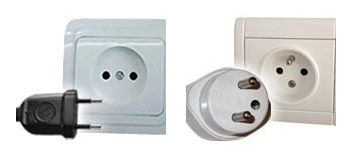
GENERAL RECOMMENDATIONS
- Comfortable clothes and shoes according to the weather of each season, bath slippers for use of swimming pools and showers and sunglasses to protect the eyes.
- Sunscreen and lipsticks.
- Always drink bottled water.
- The use of a credit card is not the most common in Morocco. The most appropriate is to pay in cash and in our local currency, which is the Moroccan dirham.
- The payment method by credit card is only accepted in large hotels, some shops or high-level restaurants.
- The sale of alcoholic beverages in Morocco is only allowed in authorised establishments. If you want to buy this type of drinks for your own consumption we recommend you follow the guide’s instructions, he will advise you or take you to the establishments where you can buy them or the places where you can consume them. For practitioners of the Muslim religion their consumption in public places is totally prohibited, so we recommend consuming them in the most discreet way possible. In most restaurants or riads without authorisation to serve alcoholic drinks they will allow you to consume your own drink (wine, beer …), but we recommend you ask before, as it can be offensive if you do not first ask permission.
- TRAVEL INSURANCE Our agency has its own insurance, but in any type of trip, whatever the destination is, it is advisable to take out personal travel insurance in your country of origin (through an insurance agency or through your airline).
- Travel insurance is not mandatory but is always recommended, and it is the responsibility of the traveler to acquire appropriate travel insurance that covers, for example, in case of illness or accident medical expenses – especially if you intend to perform an activity that it carries a certain risk, such as renting a quad, buggy …, the cancellation of the trip for unforeseen event, the loss or theft of luggage, flight delay or cancelation.
- The tip in Morocco is a custom incorporated naturally in our country and is a gesture of attention and courtesy. There is no set rate and the amount depends of your own criteria.
- Before start your trip, it is necessary do not forget to prepare a medical kit with medical supplies: basic medications to treat common diseases, and any special medical device that you may need. Basic kit: anti-thermal (paracetamol type), anti-inflammatory (ibuprofen), antidiarrheal (fortasec type), oral rehydration salts, antihistamines, gastric protector, insect repellent, Biodramina (if you usually feel sick or dizzy) … Always remember that medications should be administered as indicated by the leaflets. In case of doubt, consult your doctor or pharmacist.
MOROCCO WITH CHILDREN
TIPS AND RECOMMENDATIONS FOR TRAVELING TO MOROCCO WITH CHILDREN
Morocco is an ideal destination for a trip with family and children. With our private circuits we offer you the opportunity to enjoy the stay while learning about new cultures while the little ones are having fun.
Traveling is an activity that allows you to release prejudices, and the experience of traveling as a family is always the best gift that can be given to children.
RECOMMENDED ITINERARIES
We invite you to follow our advice and recommendations if you are traveling with young children or teenagers. We can adapt an itinerary and program to their age(s) depending on the total available days and the distance between the journeys.
Cultural visits in large cities are usually very heavy for children and adolescents, so we always recommend itineraries that include activities and places that are attractive to them, where they can interact and participate, feeling themselves the main protagonists.
The dromedary ride, sleep in haimas, count stars at night in the desert, sandboarding in the dunes or simply launch from a small dune and do the “croquette”, visit rural schools, go hiking, visit the monkeys that live freely in the Cèdre Gouraud Forest, include accommodation with swimming pool during the months of more heat so that they can enjoy leisure time … this are just some of the activities that the little ones find most attractive during their trip to Morocco.
DOCUMENTATION
The children and teenager need the exactly same documentation as an adult (a valid passport with a validity beyond 6 months).
FOOD AND DRINK
It is always advisable for adults and children to drink bottled water. Natural juices or shakes is better to avoid them if the origin is unknown, since in some places these drinks are made with tap water to obtain more quantity.
If the little ones are reluctant to try new flavours such as tajíne or couscous (present in all most every menu), you can always go to alternative dishes such as french fries and roasted meat (chicken or veal), tortillas or pizzas.
MEALS AND ITEMS FOR BABIES
Pots, diapers, milks and baby items can be bought in large stores or supermarkets. If necessary, your guide can help you to buy these products.
Any type of medication, that you think the baby may need, is always better to bring with you the usual one, because although pharmacies can be found in all cities and towns, sometimes they may not have the specific medication that the baby may need.
Our recommendation for trips with babies is to replace the usual stroller for a baby backpack carrier, since this system keep your mobility in any type of terrain.
If your child or baby needs an approved chair for transport, please notify us in writing before making the trip, since in Morocco the use is not mandatory and the reservation of the seat is under request.


